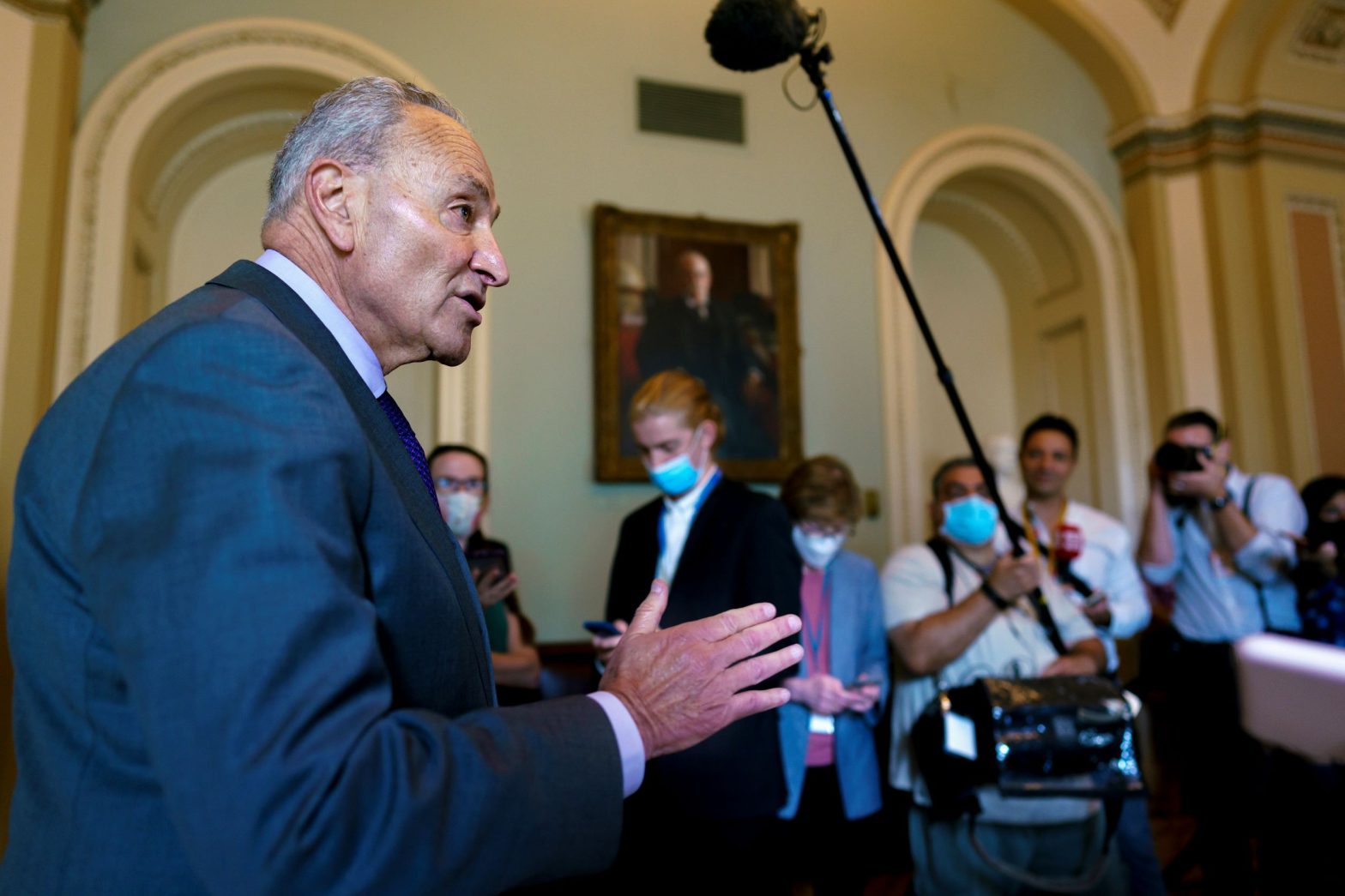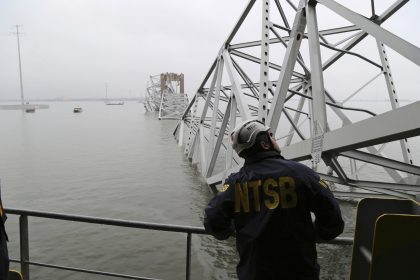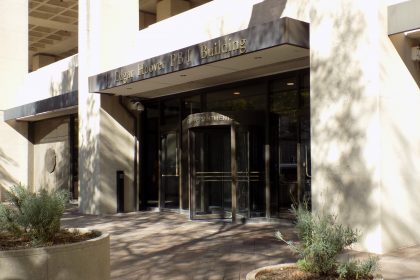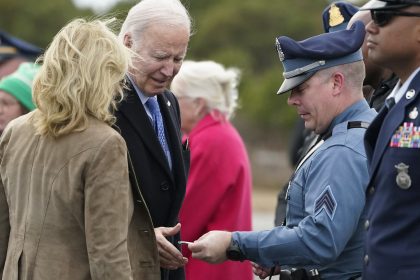Senators Finalize Bipartisan Infrastructure Bill Text

Senators on Sunday night finalized the text of the bipartisan infrastructure bill, creating a sweeping 2,702-page document that could be voted on in the chamber by the end of the week.
“We want to be done by Thursday,” Sen. Joe Manchin, D-W.Va., said on CBS’s “Face the Nation” on Sunday. “We want to move on.”
Once the bill passes, Schumer said the Senate will move quickly to consider a budget resolution.
According to E&E News, Democrats are likely to clear the resolution with their narrow majority in the 50-50 Senate, despite some reservations about the price tag from moderates in the conference.
“After the bipartisan infrastructure legislation passes this chamber, I will immediately move to the other track passing a budget resolution with reconciliation instructions, which will allow the Senate to make historic investments in American jobs,” Majority Leader Charles Schumer said on the floor Sunday.
The Infrastructure Investment and Jobs Act calls for $550 billion in new spending over five years above projected federal levels, what could be one of the more substantial expenditures on the nation’s roads, bridges, waterworks, broadband and the electric grid in years.
“We know that this has been a long and sometimes difficult process, but we are proud this evening to announce this legislation,” said Sen. Kyrsten Sinema, D-Ariz., a lead negotiator. The bill showed “we can put aside our own political differences for the good of the country,” she said.
Sen. Rob Portman of Ohio, a Republican negotiator, said the final product will be “great for the American people.”
Among the major new investments, the bipartisan package is expected to provide $110 billion for roads and bridges, $39 billion for public transit and $66 billion for rail. There’s also set to be $55 billion for water and wastewater infrastructure as well as billions for airports, ports, broadband internet and electric vehicle charging stations.
Paying for the package has been a challenge after senators rejected ideas to raise revenue from a new gas tax or other streams. Instead, it is being financed from funding sources that might not pass muster with deficit hawks, including repurposing some $205 billion in untapped COVID-19 relief aid, as well as unemployment assistance that was turned back by some states and relying on projected future economic growth.
Even if the bill passes, negotiators will still have to deal with potential objections from some House Democrats who want to see it move in tandem with the reconciliation bill and want more than is included in the Senate package.
But as far as the Senate is concerned, that’s a discussion for another day.
In an appearance on CNN’s “State of the Union” on Sunday, Sen. Susan Collins, R-Maine, said she expected the Senate to begin considering amendments to the bill as early as Monday.
Collins predicted Sunday that the bipartisan infrastructure package will have enough Republican support to pass the chamber this week.
“My hope is that we’ll finish the bill by the end of the week,” she said.
This story has been updated to include an attribution to E&E News.
























